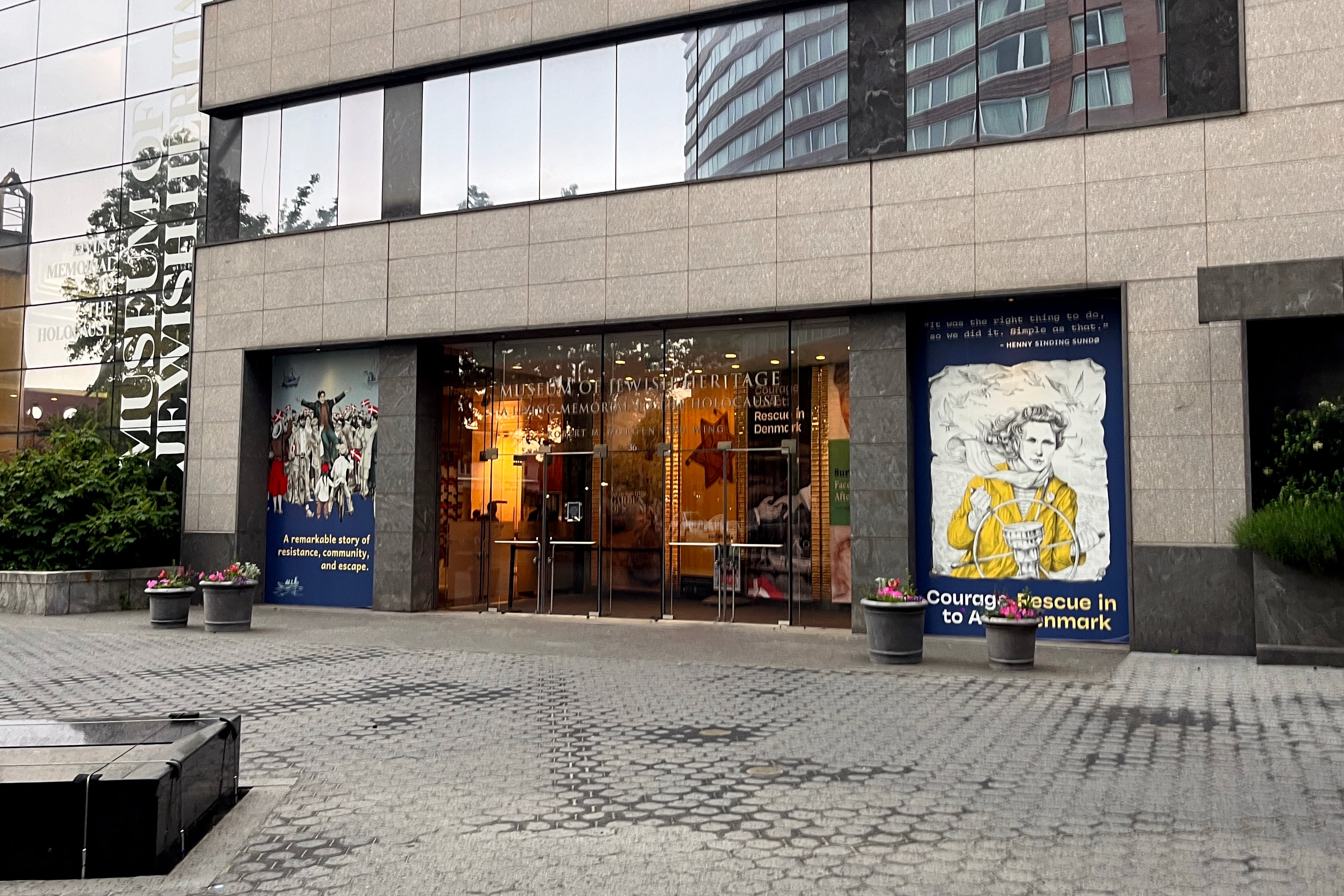Sign up for Chalkbeat New York’s free daily newsletter to keep up with NYC’s public schools.
As part of a new initiative aimed at combating antisemitism, New York City eighth graders will learn more about the Holocaust through field trips to Manhattan’s Museum of Jewish Heritage.
The $2.5 million school tours initiative unveiled Thursday comes as local officials continue to grapple with how to address rising antisemitism and Islamophobia in the city’s schools, where tensions among students and educators have been fueled by the ongoing Israel-Hamas war.
Since October, there have been roughly 280 incidents of religious bias in New York City schools, with 42% involving antisemitism and 30% directed against Muslim students, according to figures schools Chancellor David Banks shared at a congressional hearing earlier this month.
The nation’s largest school system has faced some criticism in the past year after a handful of high-profile incidents at local schools stirred fierce controversy. But Banks has defended the city’s record on antisemitism, contending that schools have consistently responded to troubling incidents with discipline, while also emphasizing education as a key tool in confronting hate.
“There is a level of persistence that we have to have to meet the moment,” Banks said Thursday as he spoke in support of the initiative. “It won’t happen just because we are going to try to do the right thing. There are certain times when it requires a different level of intensity.”
The program at the museum — which offers educational exhibitions on Jewish life before, during, and after the Holocaust — was spurred by Manhattan City Council member Julie Menin. She referred to the rise in reported cases of antisemitism as a “real existential crisis for the Jewish community.”
Eighth grade students are at an appropriate age to learn about the Holocaust, during which roughly 6 million Jewish people were murdered, she said.
Over the next three years, the museum will expand its school tour capacity and pay for transportation for schools, bringing in more than 85,000 eighth students from across the city, according to officials. Those students will be able to explore different exhibitions, including current displays on the rise in antisemitism before and during the Holocaust, as well as the rescue of Danish Jews during the Holocaust.
“You simply cannot learn about the Holocaust from a textbook,” said Menin, whose mother and grandmother survived the Holocaust in Hungary. “You need to viscerally see and hear the stories and materials that are on display in this exhibition.”
Funding for the school tours program will come in part from a $1 million gift from the Gray Foundation, which seeks to expand access to education, health care, and other opportunities for New York City youth from low-income backgrounds. The museum expects to raise the remaining funds, officials said.
Tours will be offered for free to local public and charter schools. The program follows an FAQ on antisemitism tailored to educators that museum officials released in March.
One educator said he was pleased to see the newly announced program.
“I wish it was something available to students prior to the upcoming school year,” said Kenneth Hillman, a 10th grade global studies teacher at the High School for Health Professions and Human Services in Manhattan. “What I really like about it is that students get out of the classroom and into a museum that is specially curated to address the various events involved with the Holocaust. I would argue that doing so increases student engagement with the learning material.”
Hillman noted some might be concerned that no similar educational field trip programs exist to address incidents of Islamophobia in the city’s schools — adding as a teacher, he would welcome any learning opportunities that attempt “to deepen student engagement with the many educational resources NYC provides.”
The city’s Education Department is also developing new Hidden Voices curriculums centered on the stories and contributions of Jewish and Muslim people. The Hidden Voices curriculums, which include LGBTQ history and Asian American history, aim to elevate historical figures largely left out of textbooks.
Julian Shen-Berro is a reporter covering New York City. Contact him at jshen-berro@chalkbeat.org.





